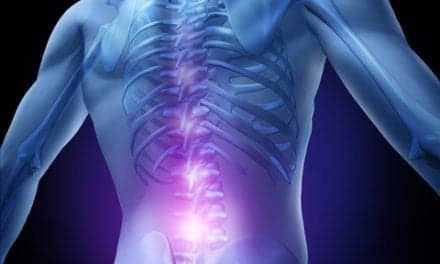A new study identifies vitamin D deficiency, as well as smoking, high body mass index, and osteoporosis, as key causes of increased lumbar disc degeneration and lower back pain in postmenopausal women.
The study, published in Menopause, the journal of The North American Menopause Society (NAMS), also documents the high prevalence of vitamin D deficiency in postmenopausal women.
In the study, researchers evaluated vitamin D status in postmenopausal women and its relationship with disc degeneration and lower back pain. It suggests that vitamin D deficiency is highly prevalent in postmenopausal women and that a serum concentration of vitamin D less than 10 ng/mL, indicating severe deficiency, should be considered an indicator of severe disc degeneration and lower back pain. It further identifies additional risk factors such as smoking, high BMI, and osteoporosis for lower back pain beyond vitamin D deficiency, a media release from The North American Menopause Society explains.
“This study shows that very low vitamin D levels were linked to a greater likelihood of moderate to severe lower back pain and more severe lumbar disc degeneration, possibly because of the beneficial effects vitamin D has on nerve and muscle pain sensitivity, muscle strength and mass, and inflammation,” Dr Stephanie Faubion, NAMS medical director, states in the release.
“Although not all women need vitamin D supplementation, this speaks to the importance of avoiding severe vitamin D deficiency states,” she adds.
[Source(s): The North American Menopause Society, EurekAlert]





